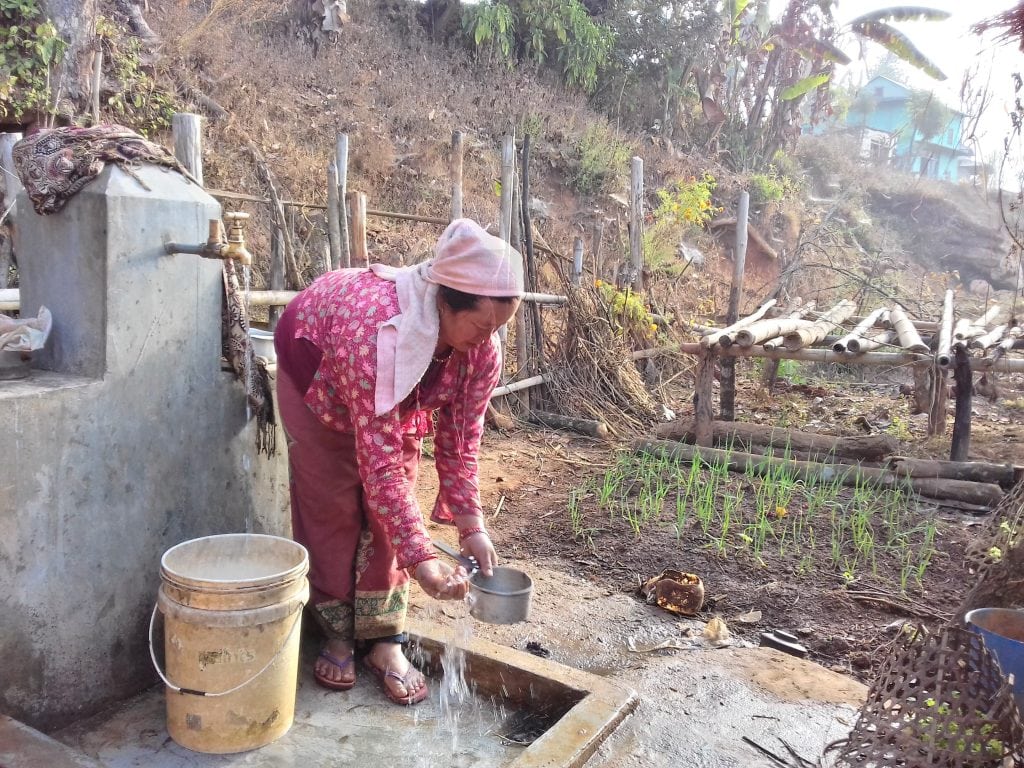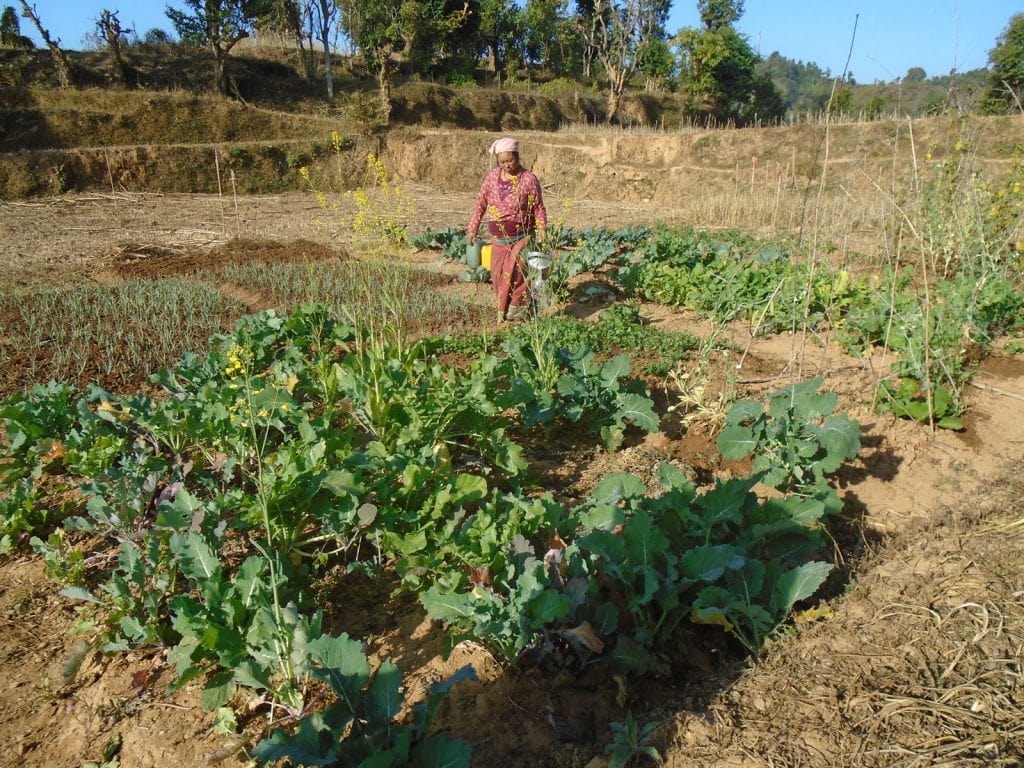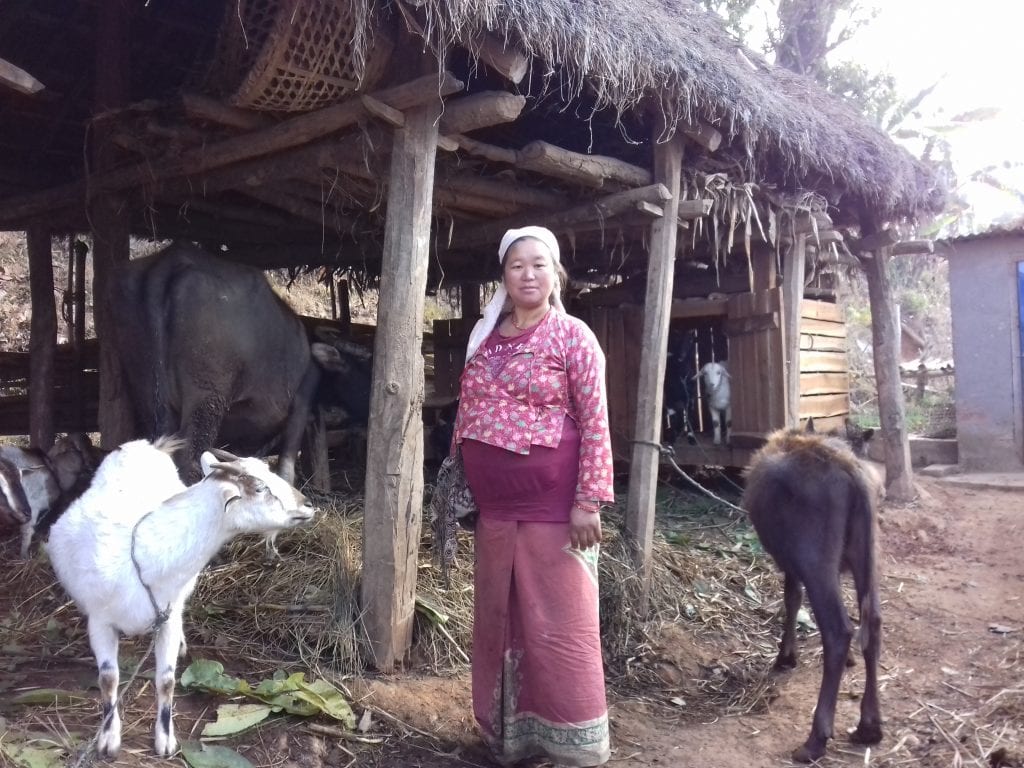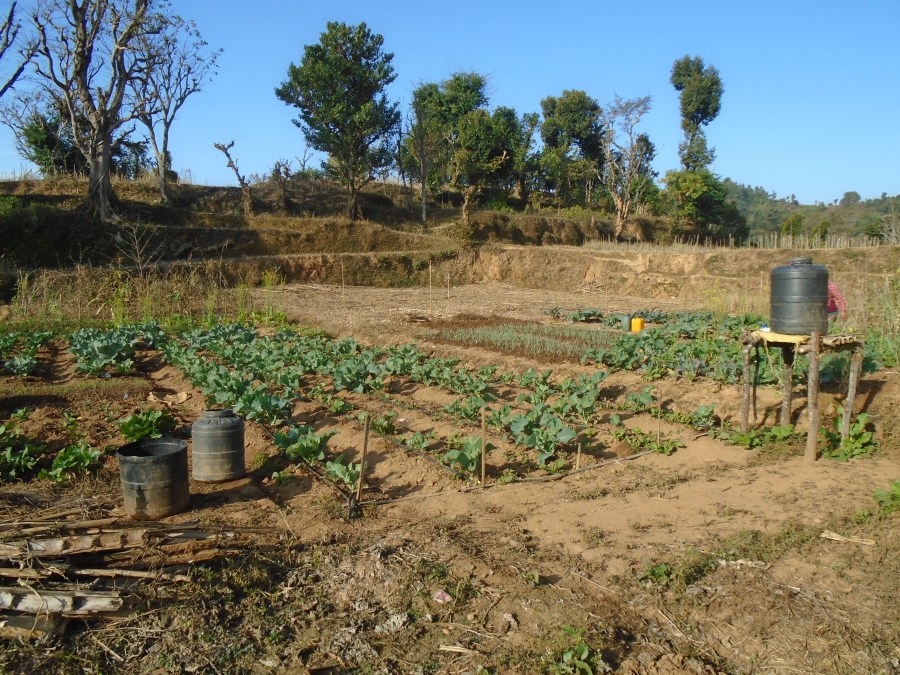Meet 34-year-old Hum Kumari Thapa from Nepal
Hum Kumari is from Magare village, located in the hilly region of Syangja District. She lives with her two daughters (aged 7 and 11 years old) and her mother-in-law, while her husband works away in the nearby town of Waling. Her family grows subsistence crops in a lowland field. This field has access to an irrigation canal, but is an hour away from her house. Hum Kumari also owns an upland field nearer the house, but with no water source nearby she was unable to irrigate it and therefore could not use this more accessible field to grow crops. Hum Kumari and her family struggled to save any money as their income from agriculture was low and erratic.
Energy to fuel agriculture
In March 2017 a solar-powered water pumping system was installed in the village. With water pumped by the system, Hum Kumari is now able to grow a variety of vegetable crops in the field close to her house. Her household expenses have gone down because she no longer has to buy vegetables from the market (to supplement what she was able to grow), and she has finally been able to set up some family savings. Hum Kumari is looking forward to growing more in the coming seasons and selling these vegetables at market to further increase her family’s income.

Time being freed up
Another benefit that the solar-powered water pumping system has brought is a time saving for Hum Kumari. She saves more than two hours a day because she no longer needs to walk a long way to collect water. Before the installation of a tap stand outside her house, she sometimes had no choice but to send her children to collect water; something she felt very bad about. Now her children don’t need to disturb their studies in order to fetch water and they are no longer late for school.

Hum Kumari said that access to water for drinking and irrigation has changed her and her family’s life. Most importantly, she is now able to spend quality time with her children and has been able to help them with their studies. Her family’s health and hygiene have been greatly improved, as well as the environment around her home following the improved access to water.

